South Korean Bae family aims for the best quality chicks
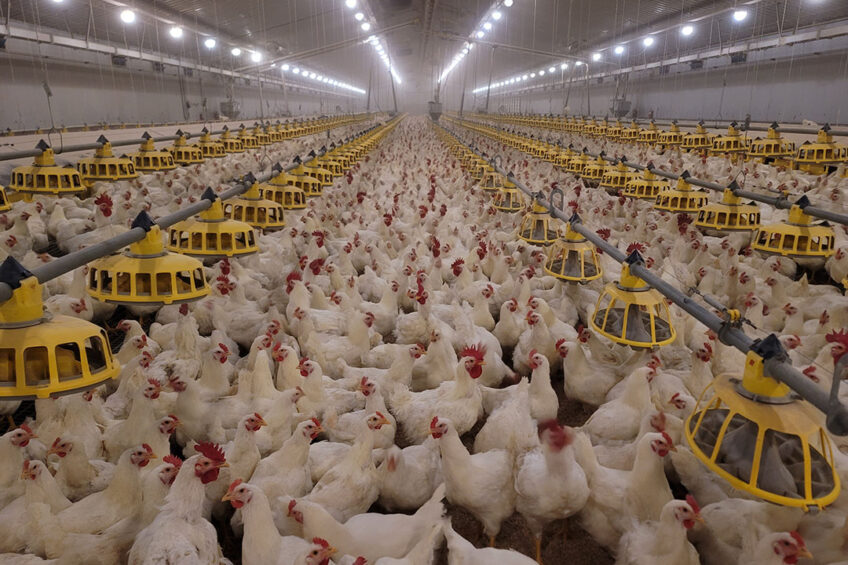
In its 70 years of existence as a breeder company, 3 generations have brought Sam Hwa GPS Breeding Agri., Inc. to the top of the South Korean poultry industry. With an unremitting effort to secure competitiveness, prioritising advancement rather than expansion, and with an eye for innovation, the Bae family aims for the best birds possible. Time to have a chat with the executive board.
The Korean war in the 1950s made South Korea one of the world’s poorest countries. Now, based on its gross domestic product, South Korea has the 13th largest economy. Along with such rapid economic growth, Korea’s poultry industry also had to change rapidly.
Today in Korea, broiler meat is produced in modernised facilities by fully-integrated companies. Annually, 7.5 million broiler breeders are supplied in the fiercely competitive broiler market. Surprisingly, the top broiler breeder producer is not a large vertically-integrated company but Sam Hwa GPS Breeding Agri., Inc. (from now on Sam Hwa) owned by Bae’s family, with 70 years of history.
By visiting this 3rd-generation family business, we learned how the Korean broiler industry has developed over the last 70 years and how Sam Hwa manages the successful operation of its businesses.
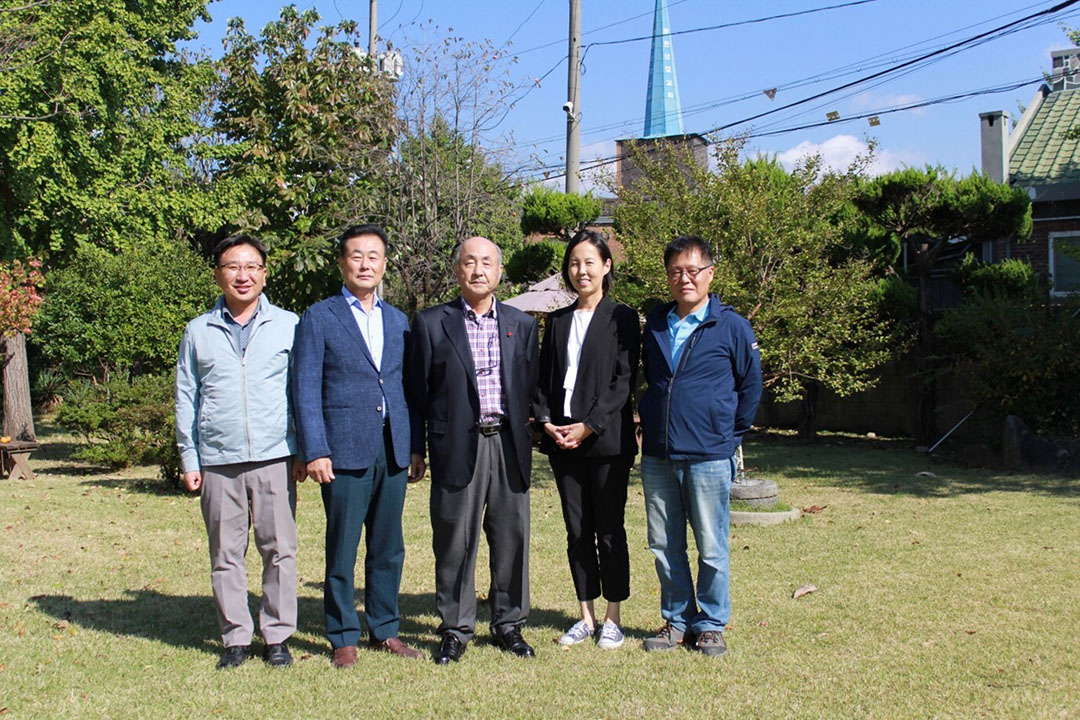
Currently, Sam Hwa is the number one broiler breeder producer in Korea, operating 11 farms and 3 hatcheries. With 300,000 breeders, they also produce 50 million broiler chicks per year. Like other businesses, they also own pig farms and organic fertiliser companies processing animal manure.
Why do integrated broiler companies want to have chicks from Sam Hwa? Because they are known for their top productivity in Korea. For example, while Ross standard chick production numbers are generally around 150 chicks per female bird, Sam Hwa has for a long time been producing more than 160 chicks. As Sam Hwa also produces the best quality chicks, many integrated companies prefer to use their birds rather than producing breeder chicks themselves.
Economic growth
When looking at Sam Hwa’s 70 years of history, we also see the history of the Korean broiler industry. “The founder of Sam Hwa, my father, started a layer hatchery in 1952. Since there were no incubators in Korea at that time, he had to hatch eggs completely by hand, including temperature adjustment and egg turning,” president Sung-Hwang Bae remembers.
In 1975, the current president changed his business from a layer hatchery into a broiler hatchery. Before 1970, chicken meat came from finished old layers, not from broiler breeds. The 1970s was a period of full-on economic growth in Korea. With the increasing demand for chicken meat, Sam Hwa could grow its business, too. As many competitors also expanded similar businesses, in 1989, Sam Hwa was the first to introduce grandparent stock (GPS) in Korea.
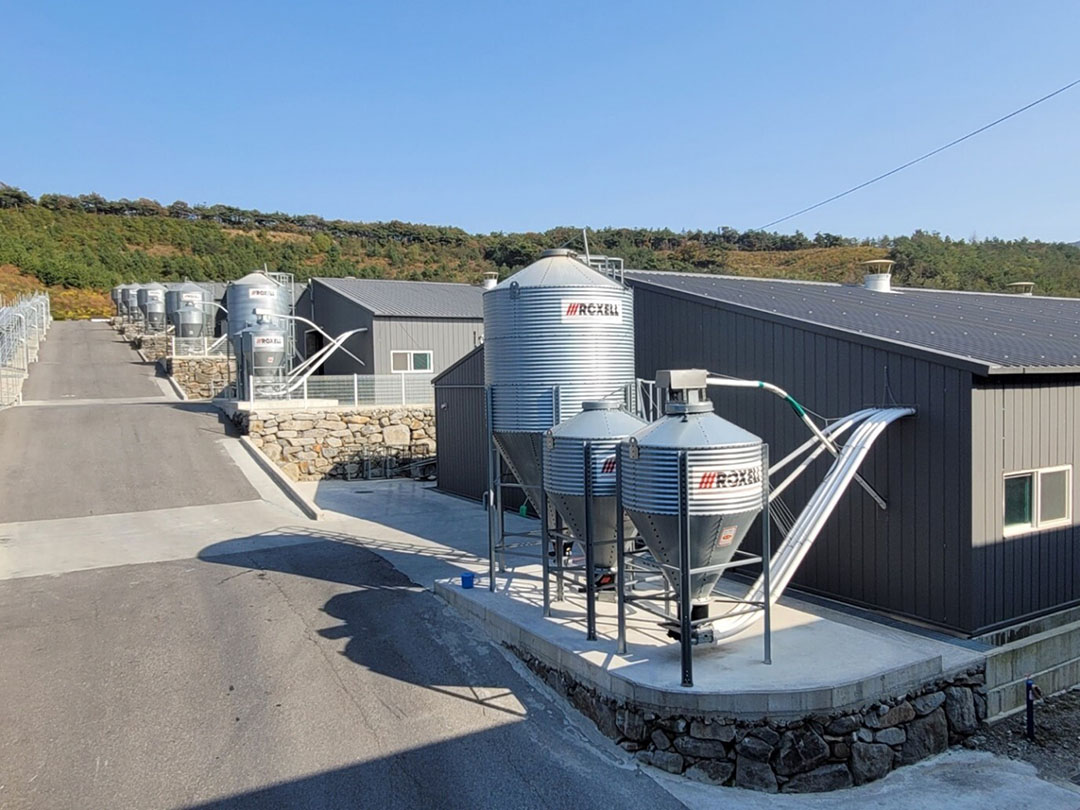
Since the 1990s, the Korean broiler industry has transformed itself from one using traditional methods into a modern integrated business. Integrated companies wanted hygienic and good-quality breeders to safeguard their stable business operations. “That trend enabled Sam Hwa to expand its farms and hatcheries,” said Bae. “With many developing Asian countries starting broiler businesses in the late 1990s, we began exporting our breeder chicks to 6 Asian countries, until the 2003 national HPAI outbreaks in South Korea.”
When we look at the Korean broiler industry, it seems only natural that Sam Hwa has grown. However, the reason why Sam Hwa could reach the top was 70 years of unremitting effort to ensure competitiveness. Right from the beginning of their business, there has always been plenty of competitors. In Korea now there are 3 more broiler breeder producers owned by big broiler operations offering different breeds. “To maintain optimum productivity we prioritised ‘advance’ rather than ‘expansion’,” says president Bae.
Sam Hwa has no hesitation in challenging and investing in innovation. Over the last 70 years, Sam Hwa introduced many new facilities and new practices (e.g., salmonella-free production, 2-floored wide house, spin feeder, hygienic heat-treated feed, 1-way flow hatchery, etc.) for the first time in Korea.
Manager Young-Hio Ko comments: “We at Sam Hwa believe that establishing an internal decision-making process and our innovative culture has contributed much more to our success than superficial investment.”
They know well that novel things that seem plausible often become added troublemakers. Before making a new investment, they always investigate and plan carefully. “Even after introduction, there is continuous analysis and adjustment to extract and maximise the practical results,” says Ko.
As separate organisations, Sam Hwa’s hygienic laboratory and facility equipment department are always monitoring the current situation and provide immediate professional support for their farms and hatcheries. This type of internal operating method and culture is not something that other competitors can easily match through financial investment alone.
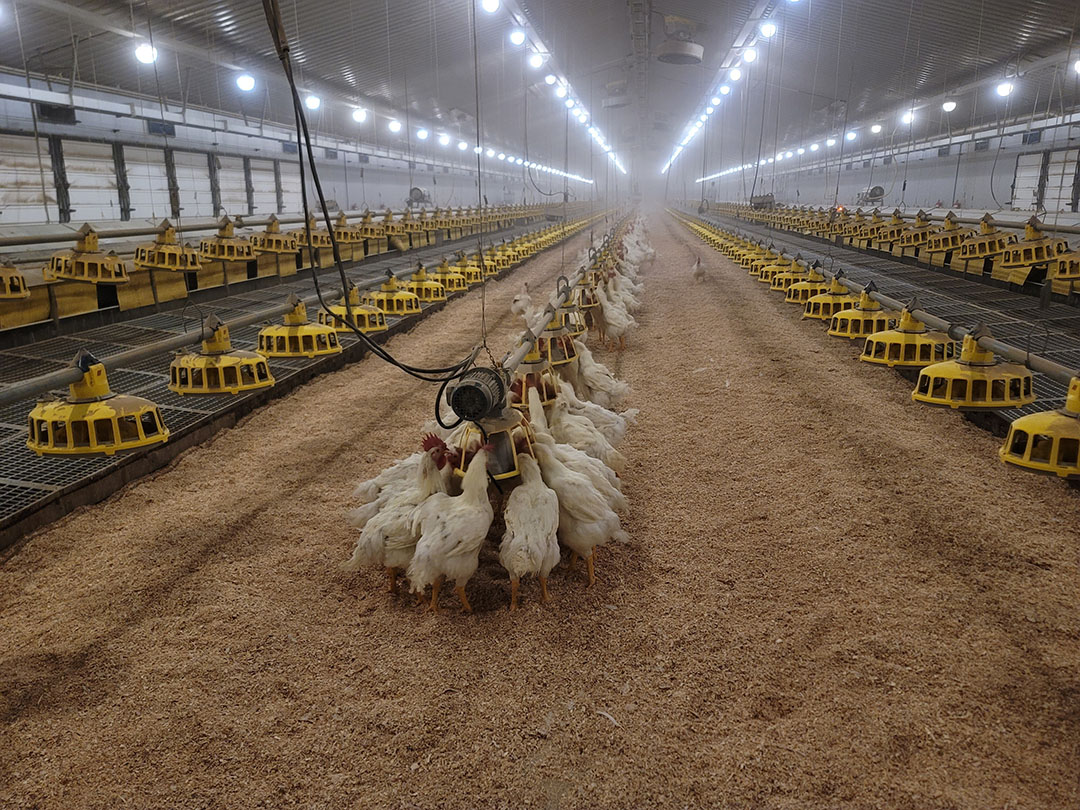
Cage to floor
To maintain the best results, Sam Hwa always uses the best facilities on their production sites. In 1992 when they started raising GPS, they decided to change the production system from traditional cage to floor to improve productivity. At that time, no one in Korea had ever tried the floor system for breeders. In a situation where everything changed, including management practices and farm facilities, Sam Hwa could not find help in Korea.
To minimise the enormous potential risks involved, Sam Hwa had to select the most reliable and supportive company. Bae: “After inquiring about different types of farm equipment, for the automated feeding system we chose Roxell’s products which have an excellent reputation. Based on our situation and the local conditions in Korea, Roxell and Sam Hwa installed appropriate products and then together determined the optimum operational practices.”
As today’s Sam Hwa shows, the move was a very successful one. Now, Sam Hwa produces the best results, far exceeding the Ross standard production potential.
“Modern farms rely heavily on automation. If someone uses unreliable equipment or fails to repair problematic equipment quickly, they will suffer huge economic losses,” financial executive Ko knows. Sam Hwa uses proven Roxell products on all its farms. Because it has used that company’s products for 30 years, all the farm staff are familiar with them and can handle them skilfully, no matter which Sam Hwa farm they work on.
Sam Hwa’s facility equipment department has experts and a spare parts centre. When there is a problem, they promptly identify the cause and find a solution. Even if it is an unfamiliar problem, they are accustomed to getting Roxell’s professional support, either remotely or by e-mail. As all the farms use the same equipment, it is easy to source and store spare parts.
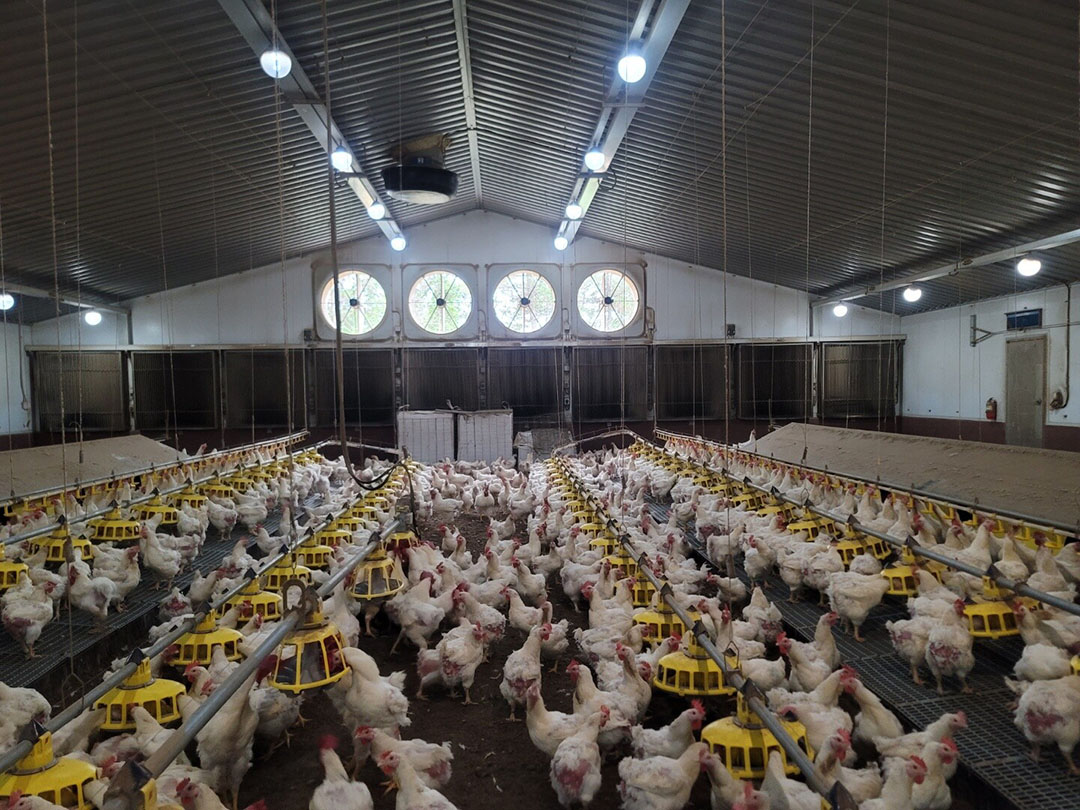
New generation
Since 2018, the family business has been in the process of handing over to the 3rd generation. Successor Sang-Hyeon Bae is already heavily involved in the company: “Although I will be taking over the top breeder company, I also know that management won’t be a piece of cake as my generation will be facing a lot of new challenges.” She continues: “In Korea today, the livestock industry is considered not just conventional in its practices but also not eco-friendly. Recently, Sam Hwa began a project to generate green energy using methane gas from livestock waste. We are trying to remould ourselves as a company that provides eco-friendly solutions to pollution from the livestock industry.”
Sam Hwa has proven that success comes from meeting a challenge to advance. Current president Bae concludes: “I have every faith that the 3rd generation will overcome future difficulties and lead the Korean broiler industry into a new era.”
Join 31,000+ subscribers
Subscribe to our newsletter to stay updated about all the need-to-know content in the poultry sector, three times a week. Beheer
Beheer











 WP Admin
WP Admin  Bewerk bericht
Bewerk bericht